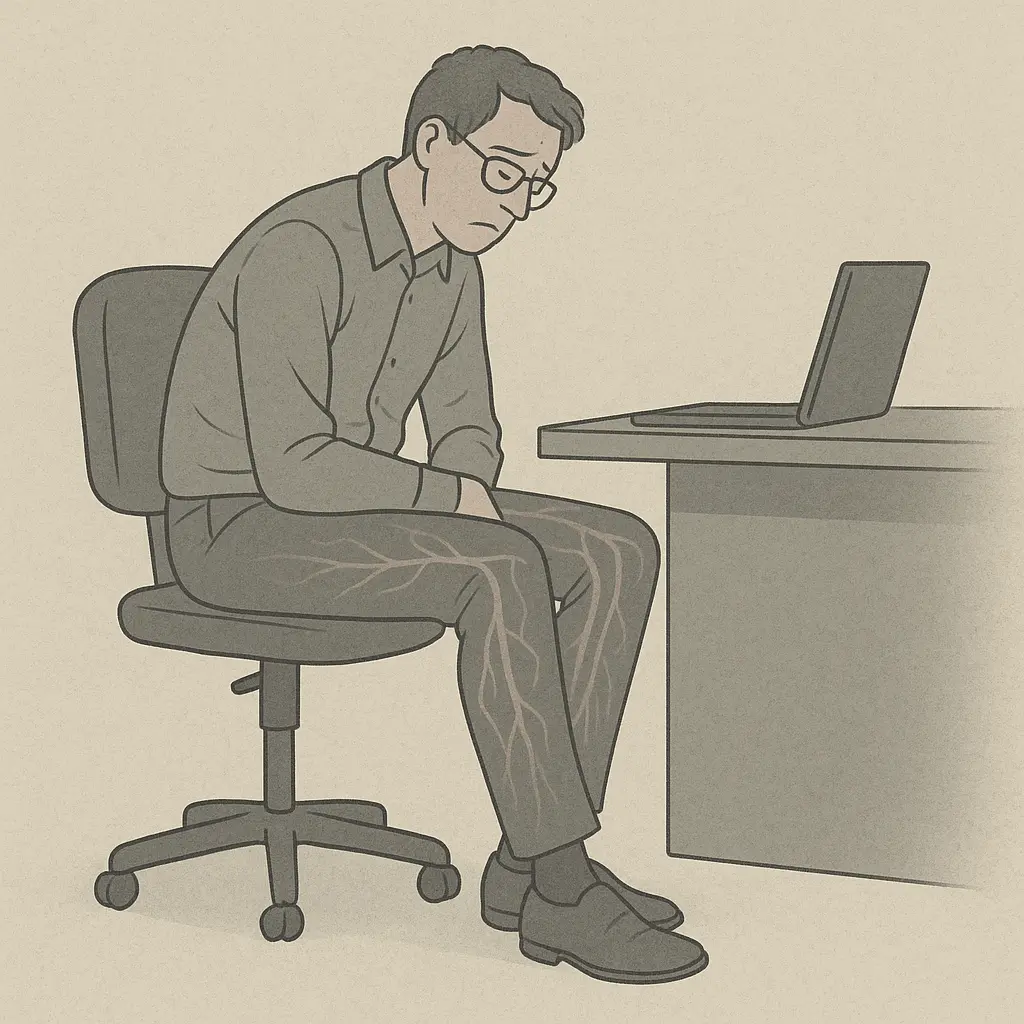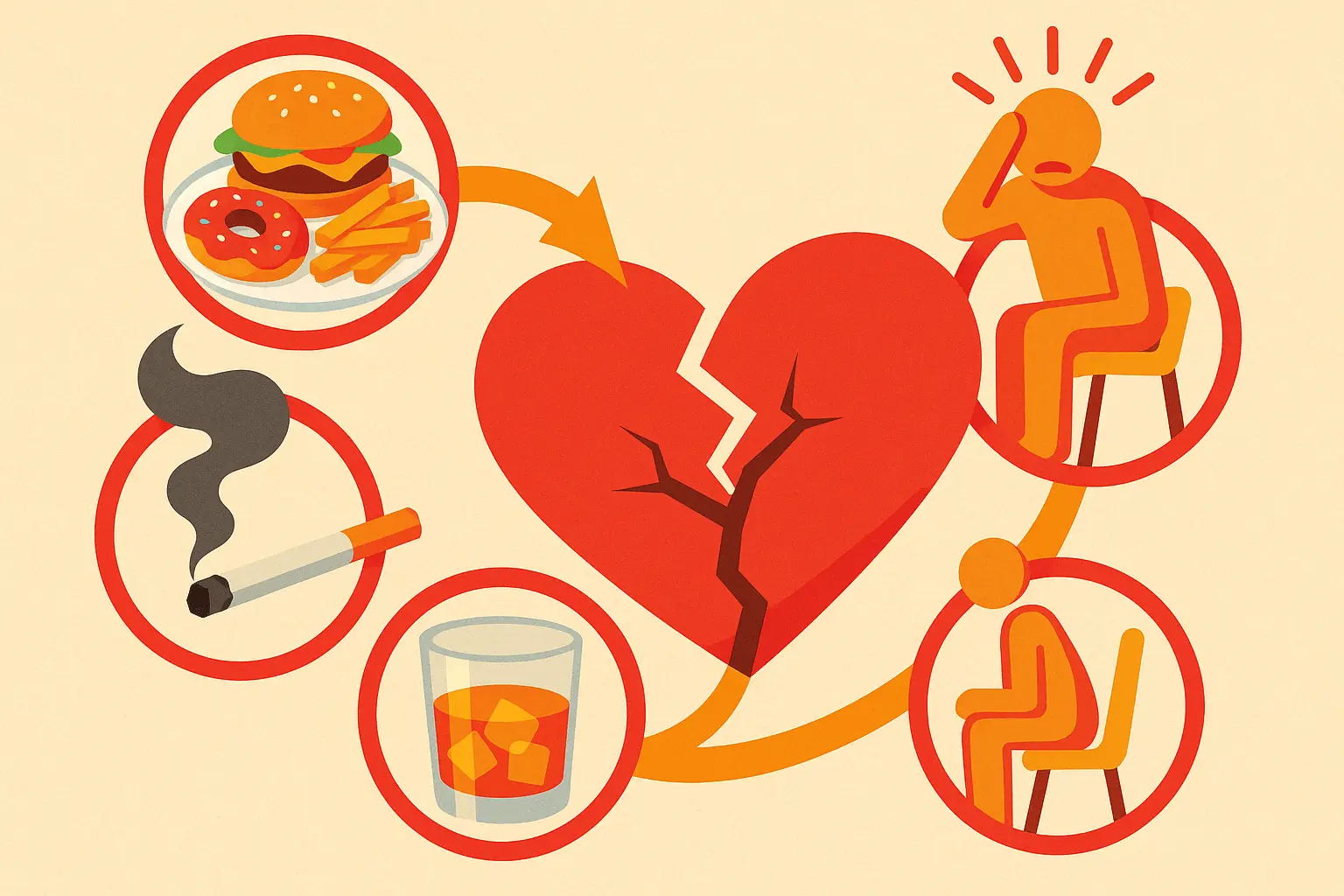Heart Diseases and Imbalanced Lifestyle—A Road to Recovery with Healthy Choices
Heart disease is not something that develops in a single day. It slowly builds up over months and years, often because of how we live. Busy routines, fast food, long hours of sitting, constant stress, and sleepless nights silently weaken the heart. Many patients rely only on medicines, yet they do not feel fully better because the main issue—lifestyle imbalance—is left unaddressed.
An unhealthy lifestyle makes the heart work harder than it should. Extra fat, high sugar, and lack of exercise narrow the blood vessels and disturb circulation. Stress hormones raise blood pressure, while smoking and alcohol damage the arteries. Together, these habits silently create serious heart conditions like coronary artery disease, hypertension, and even heart failure.
The hopeful part is that recovery is possible. A heart once strained can be made stronger again when we choose balance. Following the natural, practical guidance of Dr. Jahangir Kabir, thousands of people have turned their lives around—not through expensive treatment, but through simple changes in food, movement, sleep, and stress control. This article will guide you step-by-step to understand the causes, recognize the dangers, and most importantly, take action toward a healthier, more energetic life.
Understanding Heart Diseases Caused by Lifestyle Imbalance
What are lifestyle-related heart diseases?
Not all heart diseases are caused by age or family history. In today’s world, many heart problems come directly from daily habits. These are called lifestyle-related heart diseases. The most common ones include:
Coronary artery disease
Fat and cholesterol block the heart’s blood vessels, reducing blood flow and causing chest pain or even heart attack.
Hypertension (high blood pressure)
Long-term stress, too much salt, and poor lifestyle make the heart pump harder, damaging blood vessels.
Obesity-related heart issues
Extra body weight forces the heart to work more, which increases the risk of diabetes, high cholesterol, and blocked arteries.
Why modern lifestyle habits damage the heart

Sedentary living
Long hours of sitting at work or home reduce blood circulation, weaken the heart muscles, and increase fat storage.

Processed and fast food
High sugar, trans fat, and excess salt raise cholesterol and blood pressure, silently harming the heart.

Stress and anxiety
Continuous pressure from work or personal life keeps stress hormones high, which strains the heart and damages arteries.

Smoking and alcohol
These habits poison the blood vessels, reduce oxygen supply, and directly increase the risk of heart attack.
Poor sleep
Not getting enough rest disturbs hormones, raises blood pressure, and increases the chance of irregular heartbeat.
Common Symptoms and Risks You Shouldn’t Ignore
Early warning signs of heart disease
Heart disease rarely appears without warning. The body usually gives signals, but many people fail to notice them until the problem becomes serious. Constant tiredness, even after rest, is one of the earliest signs that the heart is not pumping properly. Another common symptom is chest pain or a feeling of tightness and pressure in the middle of the chest, which may spread to the arm, neck, or back. Many patients also experience shortness of breath while walking, climbing stairs, or even during normal daily work. An irregular heartbeat, where the heart beats too fast, too slow, or skips beats, should also be taken seriously. These symptoms may appear mild at first, but they are red flags that should never be ignored.

High-risk factors linked to poor lifestyle
While genetics and age play some role, most heart problems today are strongly connected to the way we live. Eating too much oily, sugary, or salty food slowly clogs the blood vessels and raises cholesterol. A lack of exercise weakens the heart muscles and leads to weight gain, which puts extra pressure on the heart. Stress is another hidden enemy; constant worry and mental pressure keep blood pressure high and damage blood vessels over time. Smoking adds poison to the bloodstream, reducing oxygen supply and making arteries stiff. Regular alcohol intake further damages the heart muscle and increases fat levels in the blood. Together, these habits create a silent but dangerous pathway toward heart disease. The hopeful part is that these risks can be reduced or even avoided by making positive lifestyle choices.

Dr. Jahangir Kabir’s Approach to Heart Healing

At JK Lifestyle, Dr. Jahangir Kabir promotes a lifestyle-first protocol that doesn't rely on lifelong medications, but instead focuses on removing the root cause of heart damage.
✅ Key Focus Areas:
🥦 Food is Medicine:
Consistent performance and uptime ensure efficient, reliable service with minimal interruptions and quick response times.
⏰ Time-Restricted Eating:
Speed and efficiency ensure tasks are completed quickly and resources are used optimally, enhancing productivity and satisfaction.
🚶♂️ Daily Safe Walking & Strength Workouts:
Growth capability is a system's ability to scale and adapt, meeting increasing demands and evolving needs for long-term success.
🧘 Stress Detox:
Tailor the platform to your needs, offering flexibility and control over your user experience.
😴 Hormonal Reset:
The intuitive design ensures smooth navigation, enhancing user experience without needing technical expertise.
Taking the First Step Towards a Healthy Heart
It’s never too late to start caring for your heart. Even patients who have struggled for years can experience improvement by making simple, consistent changes in daily habits. Recovery begins the moment you decide to take action.
Your journey begins today.
You do not need to overhaul your life overnight. Begin with one small habit, like cutting down on sugar, walking for 30 minutes, or practicing relaxation exercises. Every positive change adds up, gradually strengthening the heart and improving overall health. With JK Lifestyle’s support and guidance, this journey becomes manageable, motivating, and effective.